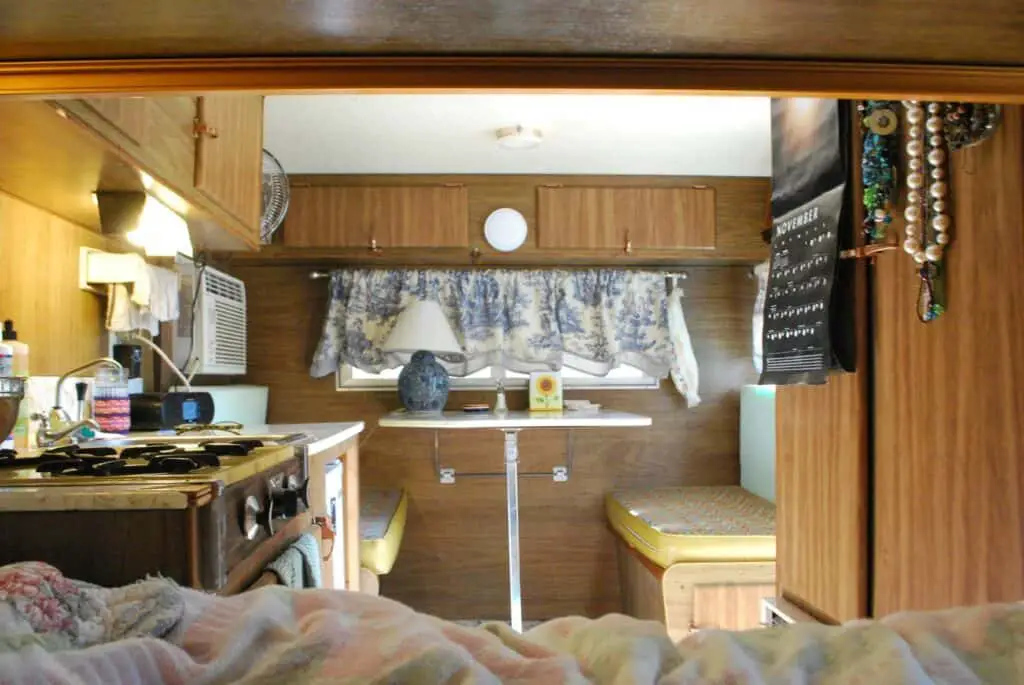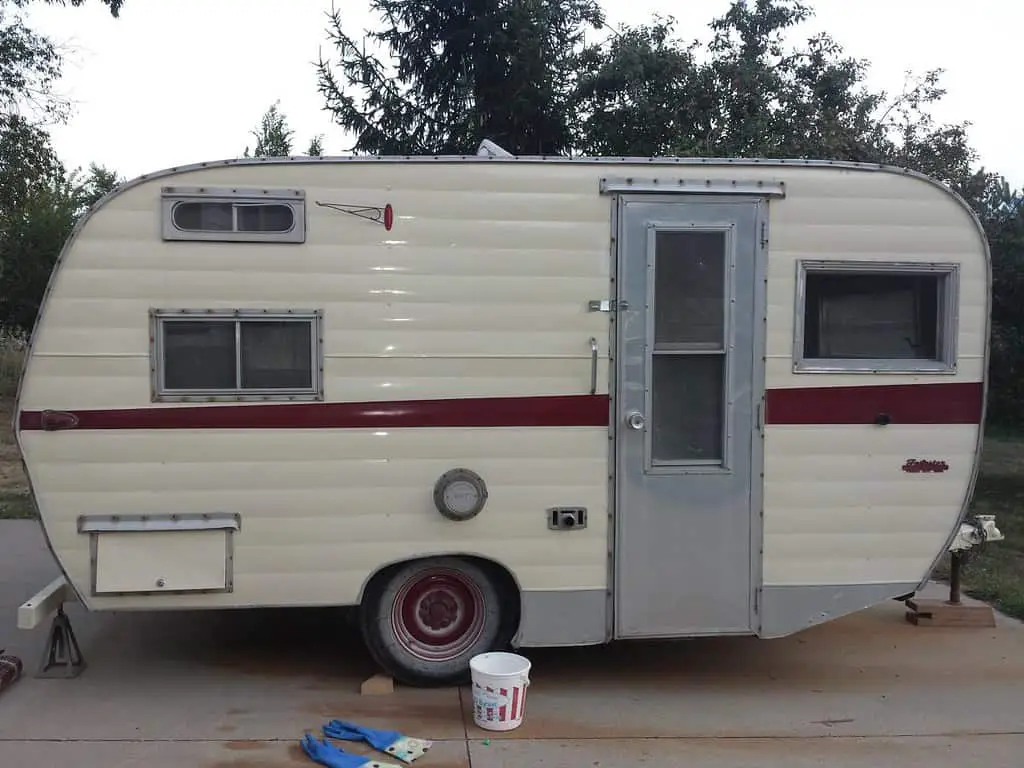When you park an RV overnight, several concerns must receive attention right away. You’ve got the electrical to hook up, the sewer to potentially manage, and a rodent threat to deter.
Recreational vehicles are uniquely susceptible to rodent damage. The combination of smells at night brings the creatures out to potentially cause significant undercarriage damage.
If small rodents get into your walls, the situation becomes even worse. Any exposure to mice or rat droppings can increase your risk of developing specific diseases.
When you read the posts on RV forums, a favorite way to deter rodents is to install rope lights. Does this affordable investment work?
Some Lights May Repel a Few Rodents
Many rodents are nocturnal creatures. That means they prefer to operate in darkness when collecting munchies or to find a new home.
If you hang rope lights to the bottom edge of your RV, the brightness can deter the more sensitive species away from your vehicle.
It is also essential to remember that mice, rats, and other rodents feel compelled to meet their basic food, warmth, and shelter needs.
If their basic needs aren’t met in other ways, it is not unusual to see rodents pass through deterrents without paying them any attention.
Some rodents aren’t exclusively nocturnal, which means rope lights wouldn’t affect their behavior at all.
You’ll typically see larger rodents as a pest issue with lights on, while smaller ones become problematic if you don’t use rope lights as a deterrent.
Would you rather deal with raccoons or mice when camping in your RV?
Get a FREE copy of the Go Together Go Far Travel Trailer Hookup and Disconnect Checklist when you sign up for the Go Together Go Far Newsletter!
You Have Other Deterrents to Consider Using
If you want to keep rodents out of your RV, several different options are available to consider using.
The first and most important technique is to block any holes that lead in from the inside and outside of your vehicle. Anything bigger than the size of a U.S. dime can let small rodents into your RV. It only takes one of them to cause an invasion to start!
Your primary entry points are the places where wires and pipes come into the vehicle, especially near the floor.
It’s a simple fix to block these access points. Expanding foam creates an instant seal that stops the casual rodent from finding places to cause trouble.
If you have concerns that the rodents will chew through this sealant, you can add steel wool into the opening before plugging it.
When the gaps are too small for the foam to work, you’ll want to use caulk to take care of the tricky spots.
Once you have the entry points severed, here are some additional ways to deter rodents when taking your RV out for an adventure.

1. Create vertical walls with metal sheeting.
Mice and rats tend to climb RVs around the tires, levelers, and jack. These spots have natural latching areas that make it easy for them to scale upward into your vehicle.
If you create an unclimbable vertical wall tall enough to prevent them from jumping above the barrier, you can avoid most entries. It helps to cut circular or tubular shapes from sheet metal to protect these areas.
You’ll need them to be at least eight inches tall to be effective. If you plan to park for more than a week, you’ll want to consider this deterrent.
2. Store your food correctly.
Rodents come to RVs because of odor attractants. For most people, the issue involves food storage.
These animals come inside because you have an essential item they need. Once they solve their hunger problems, they’ll start creating a nest.
The biggest mistake you can make when trying to deter rodents is to leave crumbs and food access available. Even an open trash can creates a temptation that these animals cannot ignore.
When you store food, keep it in animal-proof containers. A box for your cereal doesn’t qualify!
Mice and rats still nibble on the edges of plastic containers, but they don’t generally break through the material before you discover their presence.
For the best results, use canned goods and anti-rodent products to prevent them from having a meal.
And if you’ve read our article, “What Survival Food Should I Store in My RV?” you’ll want to consider rodent issues when storing it.
3. Keep your RV as clean as possible.
Anything that creates pleasant smells for rodents will attract them to your RV. If you keep the inside and exterior clean, you’ll reduce the triggers that bring these animals in your direction.
The best natural cleaners to use as rodent repellents contain natural peppermint scents. Although this essential oil doesn’t work for every species, it does offer another defensive line against a possible intrusion.
Please remember that the goal here is to keep the rodents out. If you’ve already got an infestation, these animals won’t leave their nest and food source because of an unpleasant odor.
You’ll want to clean each surface inside. When you wash the exterior, pay close attention to the undercarriage to reduce your risks.
4. Open your RV’s hood to dissipate heat.
Rodents love warm places almost as much as they appreciate a free food supply. When you park your RV at a favorite campground after a long drive, that engine will be hot. After it starts cooling, the radiative heat it offers can attract animals to crawl in there.
Once you get mice, rats, and other rodents in your engine compartment, they tend to choose cables, wires, and hoses to build nests.
Although some people put lights in their engine area, the best step is to remove the attractant. When you open the hood upon arrival, you can get rid of the extra heat before the nocturnal animals start searching for it.
5. Place mothballs near your entry points.
If you cannot fill the gaps, your entry points create, some RV owners say that strong smells can stop rodents from coming inside the RV.
The most popular option in this category is mothballing. Although you wouldn’t want to live in an RV that smelled like this traditional product 24/7, it might manage a long-term storage problem.
Mothballs contain naphthalene, which is an effective deterrent when used in large quantities. If you prefer something that smells a little better, consider using cedar balls instead.
Another option is to use a strong disinfectant soap, shower gel, or similar product. If you go in this direction, consider getting one that contains peppermint essential oils for a more potent deterrent.
6. Bring your cat along for the ride.
Since you’re driving an RV, bring the family pet for your camping vacation. The goal of having a cat along isn’t to have the animal target and kill mice or rats – although that can happen, so be prepared for the gift of guts on the floor.
Cats are natural predators for mice and rats. When they live in your RV, their presence will often deter rodents who don’t want to become dinner.
It doesn’t matter if your pet is a mouser or prefers to make friends. Using the animals’ instincts to your advantage is an affordable way to prevent intrusions without using potentially harmful substances.
7. Use traps inside your RV.
If you think that a mouse, rat, or other rodent is inside your RV, it is time to capture the pest. When you bait a no-kill trap, the animal usually enters the unit the same day you set it.
Once you catch the rodent, you must release the animal at least two miles away from your current location. If you just set it loose outside, it’ll look for ways to get back inside where things are comfortable.
Using poison or glue traps is less effective. Not only is it messy, but you could also put the lives of other animals in danger with this option.

Will an RV Cover Protect My Vehicle from Rodents?
You may have heard or read somewhere that an RV cover can prevent rodents from getting into your vehicle or trailer.
Since most rodents penetrate the vehicle through the undercarriage or engine compartment, this product doesn’t provide much protection.
It would stop mice or rats from trying to enter through a window crack or open door. It won’t stop them from getting in from the underside of your rig.
Some RVs could qualify for a complete permanent enclosure that serves as a protectant against rodents.
Why Do Some People Say That Rope Lights Work?
When you install rope lights and don’t have rodent problems, it seems like a logical conclusion that the deterrent worked.
The real question is this: are you taking other steps in addition to the lights to stop rodents from pilfering your RV?
There isn’t any harm in using lights as a deterrent. If it works for the species that live where you parked the RV, it was a worthwhile investment.
If nothing happens, your vehicle will look lovely at night.
You must take a multi-faceted approach to rodent management to ensure your vehicle stays safe. This guide aims to point out that putting all of your hopes into a single deterrent isn’t a great idea.
Get a FREE copy of the Go Together Go Far Travel Trailer Hookup and Disconnect Checklist when you sign up for the Go Together Go Far Newsletter!
Want to learn more about different types of RVs? Check out:
- Best Off-Road Camper Trailer Under $10,000
- Best Bunkhouse Travel Trailer Under 30 Feet
- Are Lance Travel Trailers Any Good?
- Do Rope Lights Deter Rodents?
- What Are the Best Names in the RV Industry?
- 3 Best Travel Trailers for Family of Four
- Blue Ox SwayPro Basics: Top Questions Answered
- Adding A Washer Dryer To Travel Trailer? What You Need To Know.
- Best Drone For Camping, Backpacking, and RVing: A Complete Guide to Drones for RVers
- Furniture and RVs – How To Get It Through the Door…
- How To Get Rid Of A Poop Pyramid In RV Black Tank
- Do You Know How Long To Keep Fresh Water In RV Tank Storage?
- What Is The Best Outdoor Security Camera System For Your RV?
- RV Bumper Mount Grills: 5 Best Options For Your RV Or Camper
- Best Electric Tankless Water Heater for Your RV. What You Need To Know
- Read Before You Buy! How to Find the Best Scooter for RV Camping
- 3 Best Travel Trailers for Family of Four
- Top RV Brands: What Are the Best Names in the RV Industry?
- Lance Campers: What Makes Them So Different?
- Best Bunkhouse Travel Trailer Under 30 Feet
- Best Off-Road Camper Trailer Under $10,000
- Best Weight Distribution Hitch With Sway Control For Travel Trailers in 2022
- What Are The Best Built Travel Trailers? Things To Consider.
- How Does An RV Refrigerator Work? A Quick Guide.
- Why Does My RV Carbon Monoxide Detector Keep Beeping? A Quick Guide.
- Where Is The Power Converter In My RV Or Travel Trailer
- What is the Best Generator for 50 Amp RV?
- Wireless RV Security Camera Systems: Is Solar Powered Security Without Wi-Fi An Option?
- Best Portable Air Conditioner for Camping for 2022
- How to Find the Best 3500 Watt Inverter Generator for RV Camping
- Best Propane Generator For Your RV: Read This Before You Buy!


